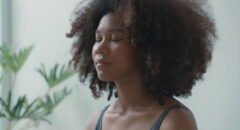
As more and more people are testing positive for COVID-19, there are also a number of people who are recovering from it as well, including a person who doctors say, shouldn't have.
All signs point to Aba Tilahun being at risk for not recovering from the disease: he was way over the age of 65 and had pre-existing conditions. Tilahun, who is officially 114-years-old, first tested positive for the virus when a random screening process took place in his neighborhood, and was admitted to hospital before the symptoms showed, Dr Hiluf Abate told the BBC.
This allowed the medical team to be pro-active with its treatment and closely monitor the old man, he added.
Within four days of his admission to the severe coronavirus ward in Yeka Kotebe hospital, Aba Tilahun's condition deteriorated as the virus took hold and he was put on oxygen, Dr Hiluf said.
In all he spent 14 days at the hospital, and was treated with oxygen for more than a week.
He also was given anti-biotics and the anti-inflammatory drug dexamethasone, which has been hailed as a ground-breaking treatment for hospital patients seriously ill with Covid-19.
Ethiopia, which has strict coronavirus restrictions, has recorded more than 5,000 confirmed cases and 81 deaths.
Tilhaun's COVID case is one for the books especially because the elderly over the age of 65 has been said to be high at risk. older adults and seniors are about twice as likely to develop serious complications than younger people. This is because older adults tend to have more underlying chronic conditions, such as heart or lung disease and diabetes.
Seniors and COVID
COVID-19 is typically signaled by three symptoms: a fever, an insistent cough and shortness of breath. But older adults — the age group most at risk of severe complications or death from this condition ― may have none of these characteristics.
Instead, seniors may seem “off” — not acting like themselves ― early on after being infected by the coronavirus. They may... sleep more than usual or stop eating. They may seem unusually apathetic or confused, losing orientation to their surroundings. They may become dizzy and fall. Sometimes, seniors stop speaking or simply collapse.
“With a lot of conditions, older adults don’t present in a typical way, and we’re seeing that with COVID-19 as well,” said Dr. Camille Vaughan, section chief of geriatrics and gerontology at Emory University.
So how is he doing now?
Tilhaun's 24-year-old grandson, Biyam, says his grandfather is doing well and looked healthy. The only after-effects of the virus had on him has been a weakened voice.









